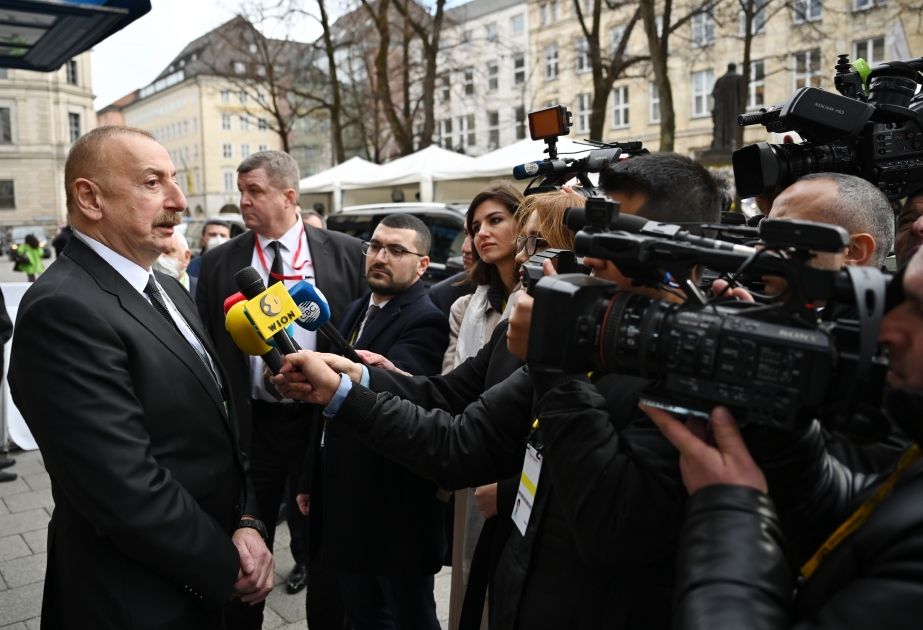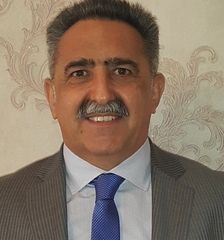New road logic initiative: Azerbaijan pulls trump card & throws Armenia into a dilemma again

Statements Azerbaijani President Ilham Aliyev made soon after the US-mediated trilateral February 18 meeting with Armenian Prime Minister Nikol Pashinyan, and US Secretary of State Antony Blinken on the fringes of the Munich Security Conference grabbed the headlines of the regional media keen on what to expect from the meeting.
Actually, Azerbaijani President Ilham Aliyev pulled a trump card and threw Armenia into a dilemma again. The presidential proposal boils down to the following - get what you want - give back what you take, id est, give and take approach. If Armenia is against granting a corridor status to Azerbaijan's exclave of Nakhcivan, it must be ready to get the same status on the Lacin corridor, which is now being called a road.
In the meantime, the Azerbaijani president told the briefing in Munich that he suggested setting up checkpoints on the border between the two neighboring nations.
“I also said that it would be good if Armenia and Azerbaijan set up checkpoints on the Armenian-Azerbaijan border in a bilateral manner. We made this suggestion earlier and reiterated it officially today. Previously, this suggestion was communicated through unofficial channels. Armenia did not voice any position. They probably need some time to discuss it,” Ilham Aliyev said.
The president added that “our initial impression is that both Europe and America view this proposal of ours as logical. This is certainly an important factor in the normalization relations between the two countries because if we are talking about border delimitation, it is impossible to achieve without checkpoints. If we are talking about the opening of communications, of course, checkpoints should be set up at both ends of the Zangazur corridor and at the border between Lachin District and Armenia. Today, at the meeting held with the participation of Secretary of State Blinken, I officially put forward this as a proposal. We will wait for a response from Armenia”, the president elaborated.
The logic behind this proposal of the Azerbaijani president is as plain as two and two make four and the Munich Security was the best venue to make this initiative public for states with plans for the region.
We are not confident that the idea of an extraterritorial Zangazur corridor is no longer on Azerbaijan's table. It is possible that extraterritoriality is still vital to Azerbaijan, but it has made up its mind to test the waters and tone down its involvement in this toxic foreign policy issue, and let the Kremlin pressurize its outpost Armenia if it needs an extraterritorial corridor.
The presence of Armenian checkpoints in the corridor, which is going to be used to transport goods to Turkey; and the presence of the Azerbaijani checkpoint on the Lachin road, will enable Azerbaijan to block much more efficiently the funding of the illegal regime in Xankandi, and thus carry out the accelerated integration of the remaining part of Karabakh in the Azerbaijani state.
The matter is that checkpoints on Zangazur and Lachin are proposals unwished for Russia as checkpoints under Armenia and Azerbaijani control would weaken the Kremlin regional control. However, if Baku and Yerevan agree with each other on the checkpoints, Russia will eventually be forced to accept the decision of both sides. It is no coincidence that the talks about the checkpoint are held precisely on the American-European negotiations track.
The emergence of Azerbaijan's current proposal is the outcome of Armenia's failure to abide by the November 10, 2020, peace deal initiated by Moscow in a rush, however, Armenia has not yet realized that if not Russia's frantic efforts, the Azerbaijani army would have completely destroyed the remnants of the 30,000-strong occupying army in Karabakh. The Azerbaijani president compared the modes of operation of these two communications lines in Brussels in December 2021 and met Armenia halfway.
A clear plan for setting up checkpoints was made in Munich. Moreover, this was done on a bilateral basis without Russia’s involvement. It is possible to establish control over the Lacin road and set up an Azerbaijani checkpoint with Russia's involvement, as a signatory party to the tripartite statement and physically present on the Lacin road. A trilateral format will not work, because Azerbaijan is not going to discuss internal affairs with Armenia. Therefore, this proposal was made at a meeting with US Secretary of State Antony Blinken.
The move is as indicative of Azerbaijan's taking the initiative. If this initiative finds no proper response, Azerbaijan will begin to act unilaterally and achieve goals after certain timeframes. Baku has taken out of Armenia's hands another controversial issue manipulated by the Pashinyan government to disrupt the peace process. The Zangazur corridor and Lacin road will operate based on the same legal principles and both countries will set up checkpoints based on their sovereign legislation.
The Munich Security Conference was prominent with very interesting results. What is happening on this international platform can serve as the beginning of important geopolitical processes for Azerbaijan and the South Caucasus in general. From this point of view, it is already possible to put forward certain considerations in terms of the future of Azerbaijan-Armenia relations.
However, Russia's exclusion from the game was not limited to this. Thus, the USA and the West insisted on removing the peace process in the South Caucasus from Russia's control. The restoration of the peace talks over Armenia, which Russia and France jointly broke off, was achieved. And this time, Armenia became the party that struck a blow to the military-political alliance with Russia.
The point is that Azerbaijan does not have any serious political, diplomatic, or military obligations to Russia. Azerbaijan-Russia relations are based on equal and mutually beneficial ties. Moreover, Baku does not oppose Russia's mediation mission at all. Just like on all other international platforms, Azerbaijan's "red lines" remain intact in tripartite meetings organized by the Kremlin.
If Baku’s this proposal is implemented, it will be a win-win case. If Armenia does not provide a corridor from Zangazur, then Azerbaijan will erect a checkpoint on the Lachin corridor. If a corridor passes through Lachin, a corridor should also be provided through Zangazur according to the 10 November agreement.
It is clear from Aliyev's words that the principle of opening communications was discussed at the Munich meeting. Yerevan put forward the road logic and Baku made a corresponding proposal: Control at both ends of the Zangazur corridor.
This proposal - the operation of both corridors with the same regime - is not in line with Russia's interests in the region, but Moscow cannot even make any objections against Baku, which made the proposal, because Yerevan determines the development of the process in this direction.
This proposal of Baku is actually addressed to international players rather than to Armenia. If the West prevails over Russia and removes the corridor logic from the agenda, we will build a checkpoint on the Lachin corridor. If Russia blocks the West and prioritizes implementation of the 10 November agreement, Baku, which provides a corridor through Lachin, will also be able to receive a corridor via Armenia.
---
Follow us on Twitter @AzerNewsAz
Here we are to serve you with news right now. It does not cost much, but worth your attention.
Choose to support open, independent, quality journalism and subscribe on a monthly basis.
By subscribing to our online newspaper, you can have full digital access to all news, analysis, and much more.
You can also follow AzerNEWS on Twitter @AzerNewsAz or Facebook @AzerNewsNewspaper
Thank you!

